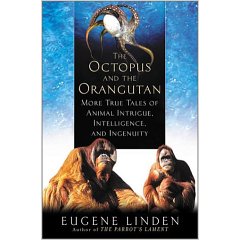I enjoyed reading
Dawkins and the Selfish Gene by Ed Sexton (2001). It provides a concise summary of the selfish gene theory and the related debates. At just 80 pages, it is perfect for those who have already read
The Selfish Gene some time ago and are looking for a quick review with a bit of historical perspective.
One the debates is on what is the fundamental unit of replication. Is it the gene, the phenotype, the individual human, or the community? It reminded me of my recent sermon
The Virtue of Selfish Genes in which I asked whether the individual unit of survival was the gene, the person, or all DNA-based life on Earth. I think that in my next update to the
Optihumanist Principles, I might add a paragraph that states something to the effect that "Survival is the absolute good. Persistence persists. We survive through the legacy of our children and our culture."
I think that in the future, we will not need to rely exclusively on genetic or memetic means of reproduction for survival. In looking for a word describing a third alternative, I found this definition of
Patternism.








